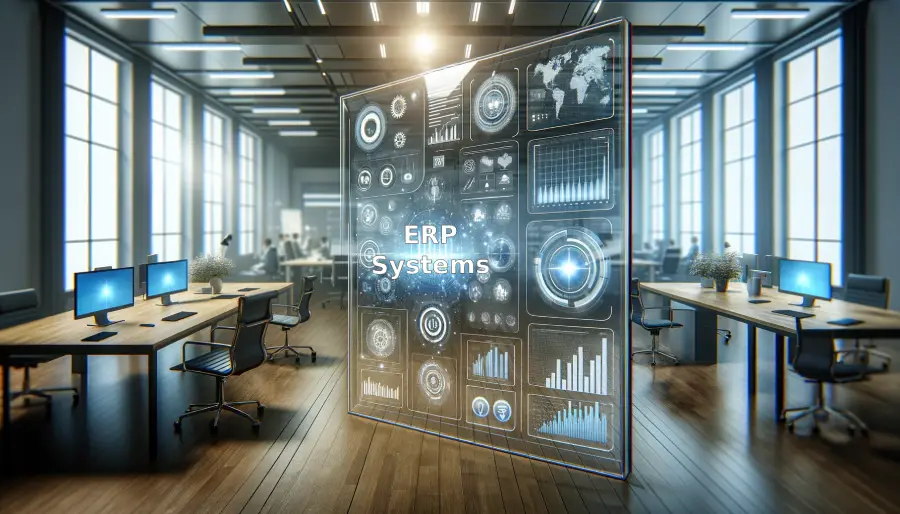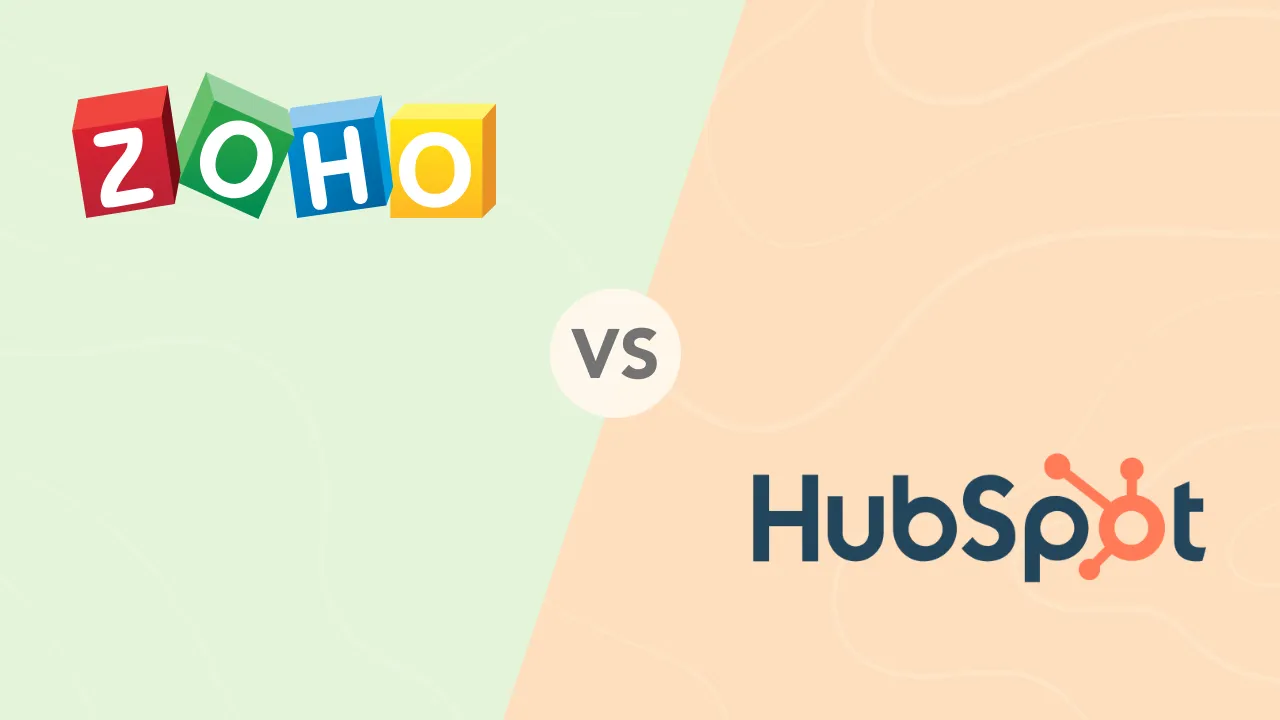What is ERP: Key Benefits, Costs, and System Comparisons

Enterprise Resource Planning (ERP) is a transformative tool for businesses, large and small, to optimize their operations, manage day-to-day business activities, and foster growth. In this comprehensive guide, we will explore the fundamentals of ERP systems. We will also explore their key benefits, essential modules, and the differences between ERP and other critical business systems like CRM and financial software.
Definition of Enterprise Resource Planning (ERP).
ERP stands for Enterprise Resource Planning, a type of software used by organizations to manage and integrate their businesses. ERP software systems integrate planning, purchasing inventory, sales, marketing, finance, human resources, and more.
What is an ERP System and How Do ERP Systems Work?
ERP systems combine numerous business processes and enable data flow between them. By collecting shared transactional data from multiple sources, ERP systems eliminate data duplication and provide data integrity from a single source of truth. Today, ERP systems are critical for managing thousands of businesses of all sizes and in all industries—to the point that they are often considered the backbone of enterprise operations.
These systems can adeptly handle automation and manage processes in multiple areas, such as:
- Finance: Streamlines financial operations, enhancing accuracy and enabling real-time financial reporting and analysis.
- Human Resources: Simplifies workforce management from recruitment and payroll to performance evaluations and compliance.
- Manufacturing: Optimizes production planning, project management, and inventory control, ensuring efficient operations.
- Supply Chain: Enhances visibility and coordination across the supply chain, improving procurement, logistics, and demand forecasting.
- Services: Manages customer service and after-sales support, driving improved customer satisfaction.
- Procurement: Automates purchasing processes, supplier evaluations, and contract management, ensuring cost-effective spending.
- Project Management: Provides tools for project scheduling, resource allocation, and budget management, enhancing project oversight and delivery.
- Risk Management and Compliance: Ensures adherence to laws and regulations, mitigating risks across all business functions.
Best ERP Software
 Seamless Microsoft 365 app integrations
Seamless Microsoft 365 app integrations  Robust business management & reporting
Robust business management & reporting  Pricing model that scales with your needs
Pricing model that scales with your needs  Real-time dashboards & customized reports
Real-time dashboards & customized reports  Automate manufacturing & sync operations
Automate manufacturing & sync operations  Customized dashboards & flexible access
Customized dashboards & flexible access Six Key Benefits of ERP
-
Increased Efficiency: By automating core business operations and centralizing data, ERP systems eliminate repetitive processes and greatly reduce the need to manually enter information, which improves user productivity.
-
Enhanced Reporting and Planning: ERP software consolidates data, which makes reporting easier and more customizable. With improved reporting capabilities, your company can respond to complex data requests easier.
-
Improved Data Security: With a single data warehouse, ERP systems can enhance security through role-based access control and data consistency.
-
Cost Savings: While ERP software requires an initial investment, it can lead to significant cost savings in the long run by streamlining processes and preventing delays or redundancies.
-
Better Customer Service: Integrated information from ERP systems can help provide better services to customers, from order processing to production and delivery.
-
Regulatory Compliance: ERP systems help organizations maintain regulatory compliance through secure and validated data, automated processes, and tracking capabilities.
Common ERP Modules
-
Finance & Accounting: Manages capital inflows and outflows.
-
Human Resources: Manage employee information, payroll, benefits, recruitment, and more.
-
Manufacturing: Manages manufacturing processes.
-
Supply Chain Management: Manages supply chain activities.
-
Customer Relationship Management (CRM): Manages customer information, leads, sales opportunities, and customer service.
What’s the Difference Between ERP and Financials?
While both ERP and financial software manage financial data, ERP systems encompass a broader range of functionality that integrates multiple business processes. Financial software typically handles accounting transactions, reporting, and compliance. However, it does not extend to managing other business functions such as HR, supply chain, or manufacturing, which are all integrated into an ERP system.
What is the Business Value of ERP?
ERP systems integrate all facets of an enterprise into one comprehensive information system that can be accessed by individuals across an entire organization. This integration can provide a myriad of benefits, including improved efficiency, accuracy, and productivity. These benefits are critical for making informed decisions and managing growth.
How Much Does ERP Cost?
ERP costs include software, hardware, a network, and personnel costs. It often involves initial license costs, implementation fees, ongoing support, and additional costs through customization and training. Despite these costs, the long-term return on investment can be substantial if the system is chosen wisely and implemented effectively.
The difference between ERP and CRM
While ERP focuses on reducing overhead and cutting costs, CRM aims to boost profits by producing greater sales volumes. They are similar in that they both handle customer information. However, CRM focuses specifically on sales, marketing, and service management. ERP covers a broad spectrum including integration with planning, inventory, purchasing, and human resources.
Conclusion
ERP systems stand as the cornerstone technology for modern business management, integrating various functions across an organization into a cohesive operating system. ERP systems offer substantial benefits, ranging from improved efficiency and reduced costs to enhanced security and better decision-making capabilities. These systems support scalability and can adapt to evolving business needs, making them indispensable for companies looking to streamline operations and drive growth.
While ERP systems offer comprehensive solutions, there are alternative tools that serve specific needs within an organization. For instance, standalone financial software, project management tools, or industry-specific solutions may serve as partial replacements or supplements to an ERP system, especially for smaller businesses not ready to invest in a full-scale ERP solution.
For businesses considering an ERP system, it is vital to assess both immediate needs and long-term goals to select a system that aligns with their specific requirements. Tools like Microsoft Dynamics, SAP ERP, Oracle ERP Cloud, and newer entrants like Workday offer varied functionalities that cater to different business sizes and industries.
Ready to harness ERP power for your business? Explore how ERP systems can transform your operations, streamline your processes, and drive your business forward. Visit our detailed ERP software comparison page or contact our experts today for a personalized consultation to find the ERP solution that’s right for you!








